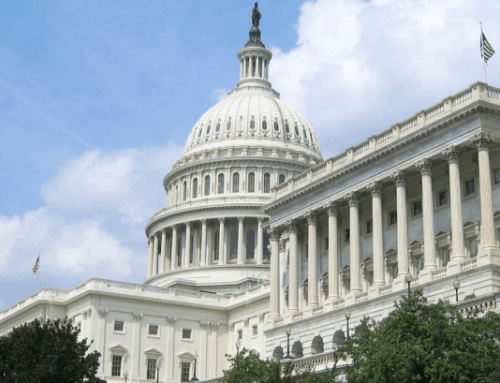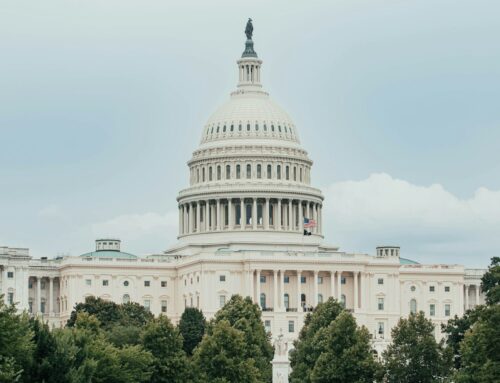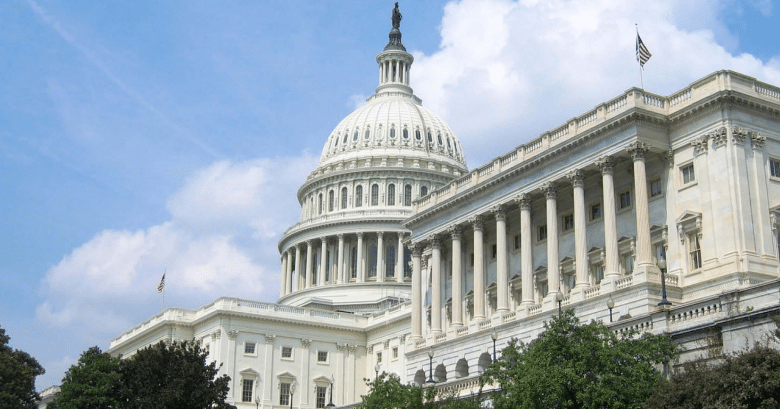Congress is likely to consider significant tax legislation due to the 2025 end of year expiration for many tax provisions passed in the Tax Cuts and Jobs Act of 2017 (TCJA). These expiring provisions encompass a wide range of tax benefits and reductions for both individuals and businesses. The upcoming Presidential Election will also fuel debates over the future of these tax provisions and whether they should be extended, modified, or allowed to expire.
The Tax Relief for American Families and Workers Act of 2024, for example, extends and modifies several expiring tax provisions from the TCJA. The biggies on the business side include immediate expensing for research and development costs and 100% bonus depreciation. The provision with the biggest impact on individuals is the bill’s modifications to the child tax credit. After passing the House with bipartisan support, it is currently languishing in the Senate.
Okay, we’re about to get wonky on tax. Bear with us because it’s important.
The TCJA introduced significant changes to the international tax provisions as well. It combined a massive corporate tax rate cut, from 35 percent to 21 percent, with several international tax provisions. The aim was to balance competing objectives, such as maximizing revenue and growth for companies while minimizing profit shifting and complexity. Last month, the Senate Budget Committee convened a hearing titled “Sunny Places for Shady People: Offshore Tax Evasion by the Wealthy and Corporations,” on tax evasion through offshore financial structures, a problem costing the U.S. Treasury an estimated $688 billion in lost revenues in 2021 alone.
In 2015, the Boston Consulting Group estimated that approximately eleven trillion dollars of wealth were hidden in offshore jurisdictions, largely out of reach of tax authorities (both the US and other countries). The Panama Papers scandal in 2016 and Paul Manafort’s conviction for concealing foreign bank accounts in 2018 further highlighted the issue. In an attempt to reduce incentives for companies to flock to artificial tax havens, in 2021, over one hundred countries, including the United States, agreed to introduce a minimum corporate tax rate of fifteen percent, which was a significant development.
However, a report from the EU Tax Observatory notes that “since the political agreement of 2021, the global minimum has been dramatically weakened by a growing list of loopholes.” The report concludes that “tax evasion is not a law of nature but a policy choice.” For U.S. companies with affiliates or branches in foreign countries, approximately 69 percent of their foreign profits are currently held in tax havens or low-tax jurisdictions. Although much of the evidence is from before the significant international tax reforms of 2017, a recent estimate indicates that losses could be as high as $80 billion annually.
The Global Intangible Low-Taxed Income (GILTI) provision of the TCJA is a tax on foreign earnings of U.S. multinational corporations that exceed a 10% return on foreign tangible assets. The GILTI provision aims to discourage companies from shifting profits to low-tax jurisdictions by imposing a minimum tax on foreign earnings. However, the GILTI provision has been criticized for its complexity and potential to create unintended consequences, such as double taxation of even high-taxed income due to quirks in its expense allocation rules, which can act as a surtax on income that was already taxed relatively highly.
Related, the TCJA also introduced the Base Erosion and Anti-Abuse Tax (BEAT), which is a tax on certain payments made by U.S. companies to foreign affiliates. The BEAT provision is to prevent companies from reducing their U.S. tax liability by making deductible payments to foreign affiliates in low-tax jurisdictions. However, the BEAT provision has also been criticized for its complexity and potential to create unintended consequences, such as discouraging U.S. companies from engaging in legitimate cross-border transactions and creating compliance burdens for businesses.
These international tax provisions were included in the TCJA for a reason. They resemble the so-called “Pillar Two” rules, part of a global tax agreement brokered by the Organisation for Economic Co-operation and Development (OECD) to establish a global minimum rate of 15 percent which was agreed to in 2021. However, TCJA and Pillar Two clash on some specific details. For example, GILTI calculations pool foreign income across all countries, whereas Pillar Two would require separate foreign tax credit calculations for each country, and BEAT applies to a broader range of payments than Pillar Two’s scope. These discrepancies may result in increased compliance burdens and tax liabilities for U.S. multinational corporations as they navigate tax rules in the various countries in which they do business.
To address this issue, the White House has proposed, as part of its FY2025 budget request, to replace the BEAT with a tax regime known as the Undertaxed Profits Rule (UTPR). UTPR stems from part of Pillar Two of the OECD’s Base Erosion and Profit Shifting (BEPS) project. The White House has also proposed modifying the GILTI mechanism to align more closely with BEPS.
We wade into this morass because the stakes to business and the Treasury are high.
The Joint Committee on Taxation (JCT) has outlined the potential revenue impacts for the U.S. from adopting the Pillar Two rules, predicting either a loss of $175 billion or a gain of $224 billion between 2023 and 2033, depending on corporate profit-shifting behaviors. Under different global adoption scenarios, the JCT estimates that U.S. revenues could decrease by $122 billion if the rest of the world adopts the Pillar Two and the U.S. does not, increase by $237 billion if only the U.S. adopts it, or increase by $102.6 billion if the U.S. adopts major components excluding the UTPR while the rest of the world does not.
The TCJA was meant to enhance competitiveness for U.S. firms globally, decrease the incentive for profit shifting, and make the U.S. a more attractive place for investment through various measures. While these measures have had mixed success in curbing profit shifting and ensuring competitive equity, the international tax landscape is evolving with global agreements like Pillar Two, which may require further adjustments to U.S. tax policy in the near future. Stay tuned.










